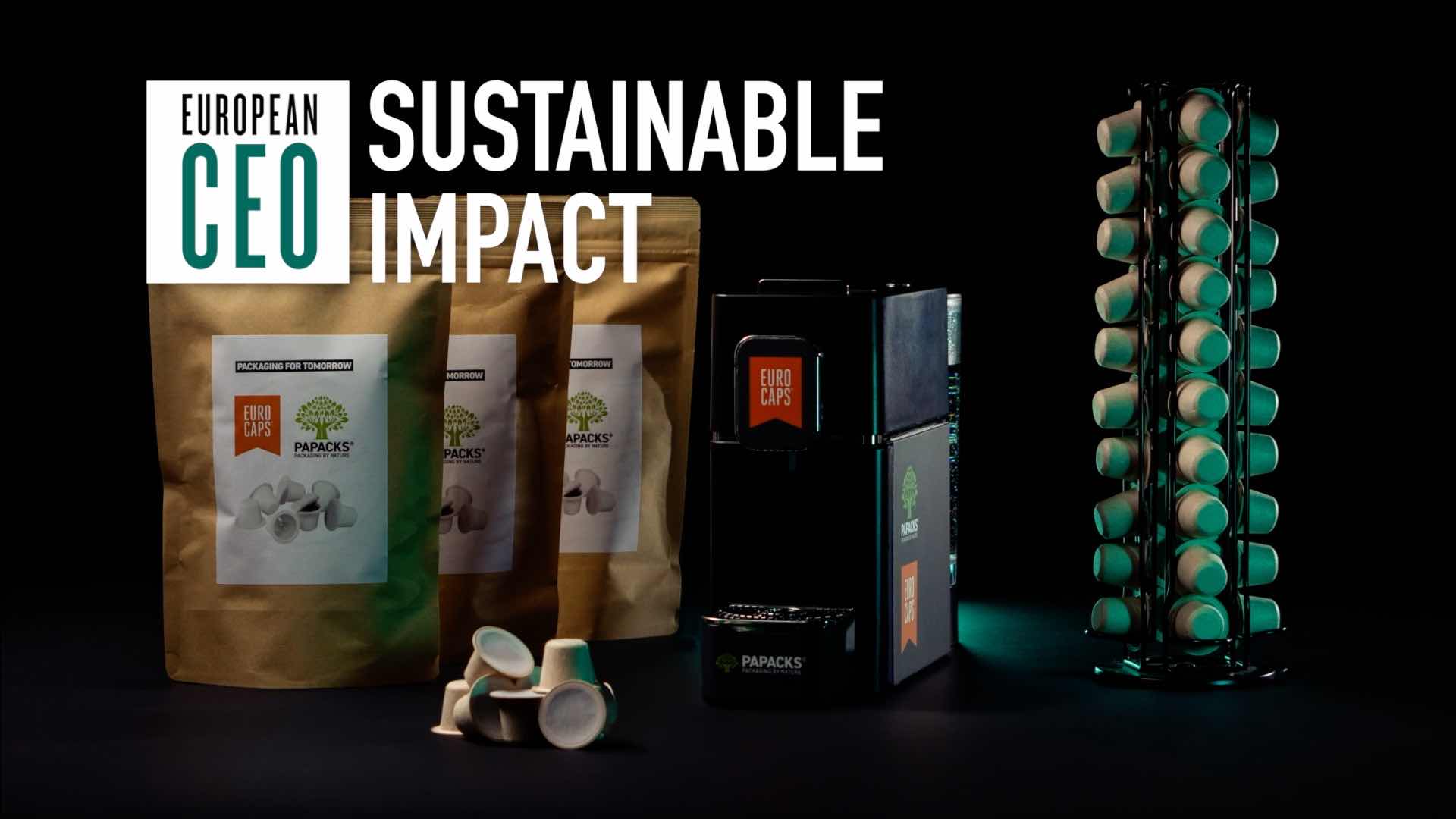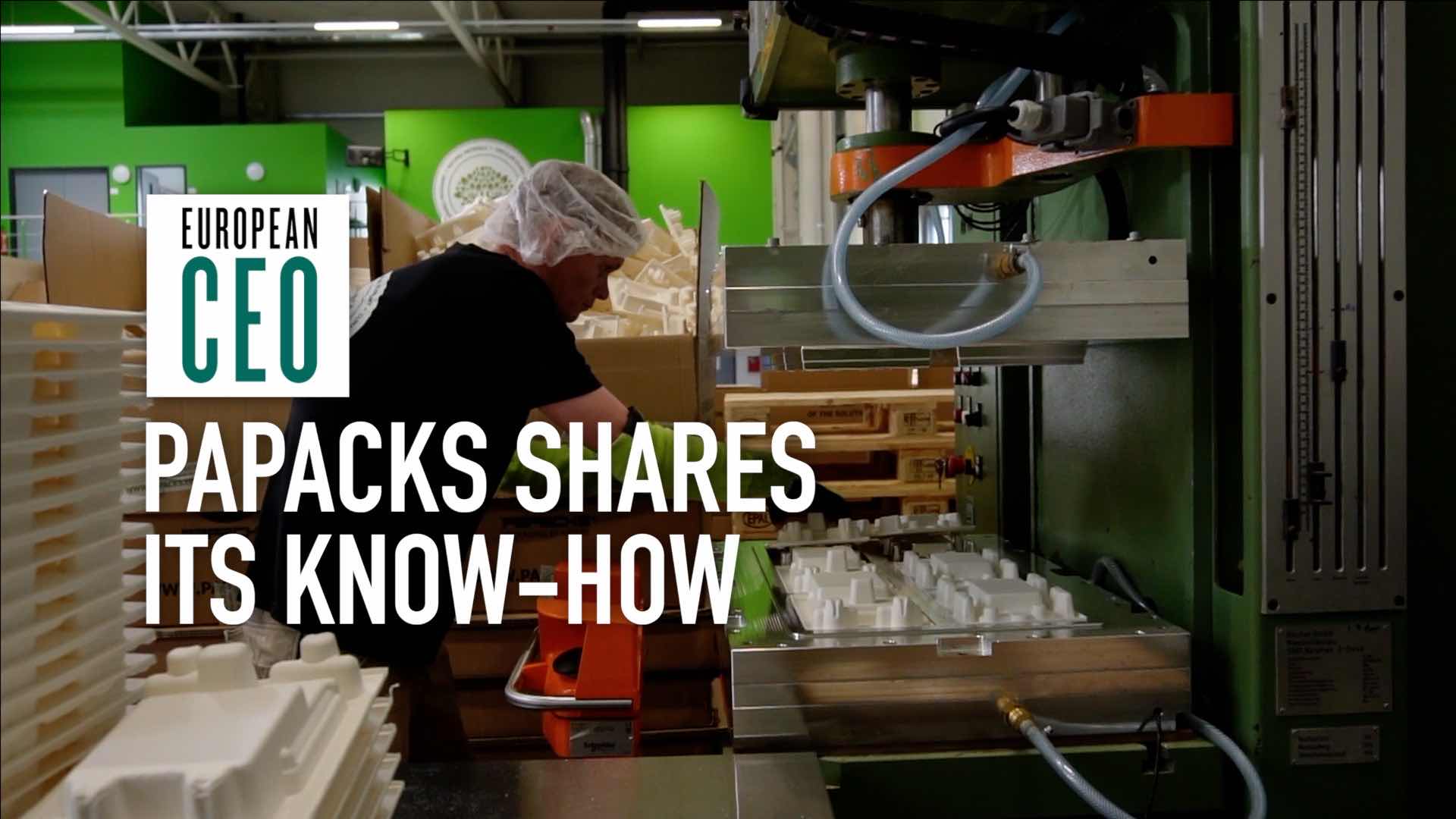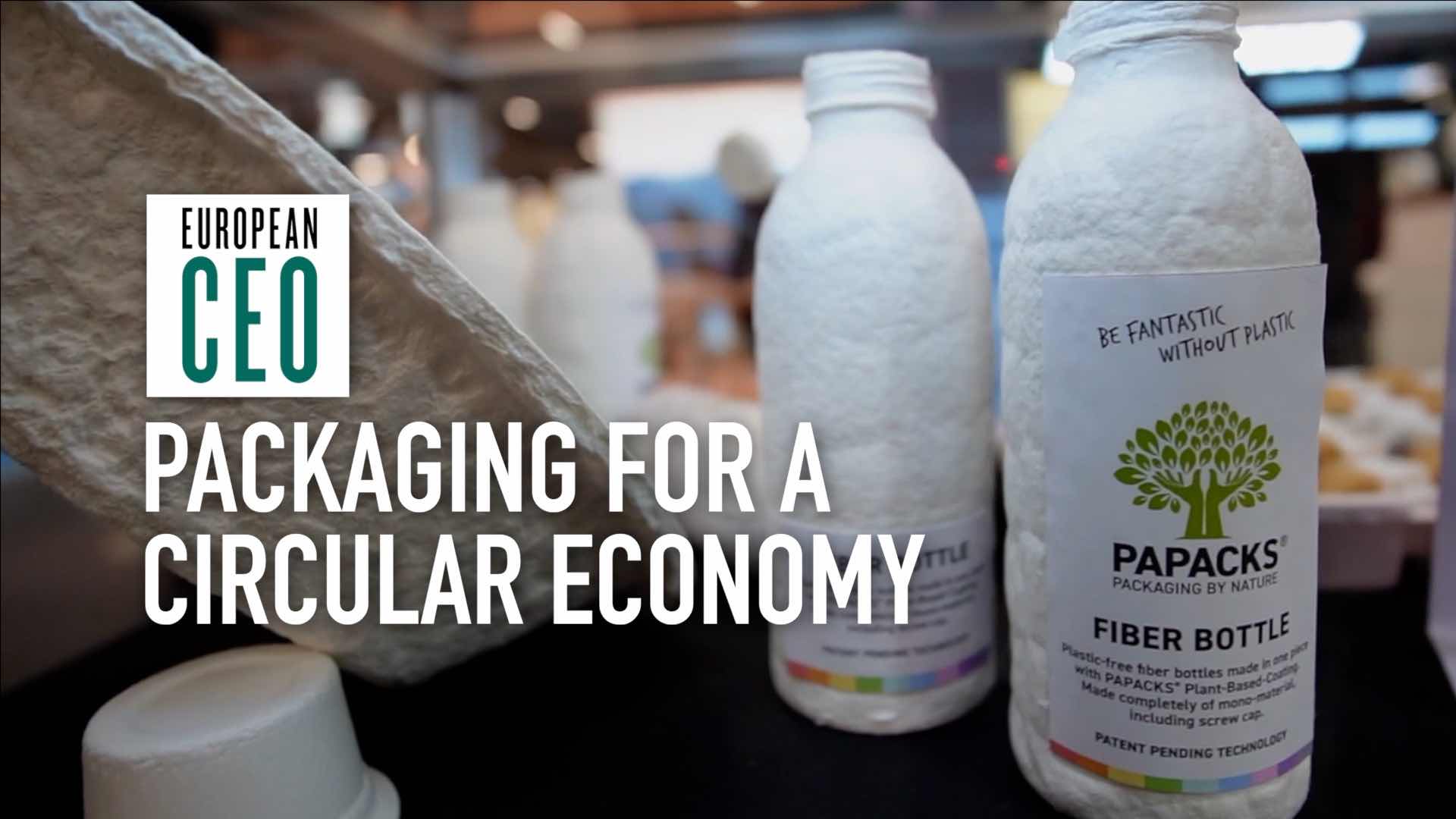ByBox CEO: Transform supply chains with innovative technology
We have invested millions in making our supply chain solutions cheaper for our customers, says ByBox CEO Stuart Miller
Transcript
We have become increasingly dependent on technology, and intolerant of technology failure. Stuart Miller, co-founder and CEO of international supply chain solutions business ByBox, explains our supply chains must innovate to match higher demands from logistics customers.
European CEO: We have become increasingly dependent on technology, and this is unlikely to slow down. We are also becoming increasingly intolerant of technology failure: whether it’s ‘no signal’ on a mobile phone, or ‘signal failure’ on a train. With me now to discuss how supply chains can keep pace with this insatiable demand for smarter infrastructure is Stuart Miller, co-founder and CEO of ByBox.
Well Stuart, let’s start with the main challenges facing technology infrastructure today, and how are supply chains responding to this?
Stuart Miller: Well, I think the main challenge, as you’ve already highlighted, is the fact that as a society we are increasingly dependent on tech. Whether it’s a phone, whether it’s a medical machine, whether it’s an ATM: we absolutely expect 100 percent uptime, and expect it to come for free.
So the main challenge for supply chain companies that are responsible for keeping that infrastructure uptime at 100 percent, keeping it ticking over, is to not think like a distribution company. To not think like a supply chain company.
The main insight is for them to think like their customers. So if you go back 20 years, would you have thought that a smartphone could have the kind of screen that it has today. We might have all thought no; some people really thought no, and they suffered as a result, some of the tech companies.
So supply chain companies, if we think that certain things are not possible; if we just sit there and assume that things can’t be done in a particularly innovative or disruptive way, then we will struggle. So the main thing for me, and the way that we run ByBox, is not to think so much like a logistics company, but to think much more like our customers.
European CEO: And when it comes to customer expectations and demands, how have they changed, and why is it so important to understand them?
Stuart Miller: The challenges haven’t actually changed, interestingly. They’ve been the same challenges as are probably true in many sectors. It’s lower cost, improve service, more for at least the same spend or ideally less.
And for us, it’s as a distribution company at the outset, it can be quite counterintuitive to think, well, I need to work out how to move things around the world less frequently. Because usually for a distribution company that means making less money. If you move something less, you make less money.
So it’s quite a bold step to say ‘I want to invest – in our case, millions – in technology and software to actually help our customers spend less money with us.’ But that is without question at the heart of our success.
European CEO: Well ByBox has in fact grown every year for the past 15 years, so what would you say are the key principles to drive continued growth for a tech company?
Stuart Miller: We started in Silicon Valley, and that maybe is where we got our real appetite for tech, and to think of ourselves as a software and technology company.
How we do that, and how we’ve driven the growth year after year – for me it all actually starts with recruitment. It starts with recruiting the right people, with the right constructively rebellious, disruptive mindset. You know, you can’t shift a sector with shrinking violets. You have to have people who are prepared to think beyond convention, and people who are prepared to think beyond conforming to certain things. So it starts with rebellion.
And interestingly, a lot of companies will try to brainwash that out of you, they try to bash that out of you. But we try our hardest to look for that twinkle in your eye when we recruit people.
And then of course you need to give people a framework to work within, and to allow that curiosity to manifest itself in some commercially viable innovation.
European CEO: Well the UK obviously depends – well, the UK economy depends – on entrepreneurs to start new companies and then take them global. So is the UK a good place to launch a tech business?
Stuart Miller: Oh yes. Short answer, it’s fabulous. It’s a great country to launch any kind of business.
I learned a new word recently: wantrepreneur. You hear about these wantrepreneurs who want to start a company – they want to be an entrepreneur, but never quite get themselves to. And they’ll moan about things like the lack of access to finance, the lack of all sorts of things.
The UK’s a fantastic place to be an entrepreneur. It’s fantastic in terms of the support for investors, and the tax relief that’s available for investors in early stage companies. It’s fantastic for an entrepreneur for the same reason in terms of, it’s financially very rewarding as an entrepreneur if you’re successful in the UK.
And more importantly recently, the ecosystems have evolved in so many parts of the UK – in the obvious places like Oxford, Cambridge and London, that magic triangle. But it’s beyond that. If you go into the Midlands: Birmingham, Manchester and beyond; we really are into our stride in the UK in terms of start-ups.
My mum used to jibe me, saying, ‘When will you get a proper job?’ But I think now we are realising that becoming an entrepreneur and starting your own enterprise is a very credible career option.
European CEO: So you don’t think the government could do more to help?
Stuart Miller: Well interestingly, I think what the government should do is, in varying forms, get out of the way.
I think what they do well today is to provide the tax incentives and the financial infrastructure for entrepreneurship to flourish, and for innovation to flourish. They could do more in terms of encouraging business schools to work with entrepreneurs, and I know that Lord Young’s initiatives around that space are very, very encouraging.
So there are certain things that government can be supportive of. But fundamentally, I think that government’s role is to allow us to just get on with it.
European CEO: So finally, how do you see the tech supply chains developing in the coming years, and what will be the major issues moving forward?
Stuart Miller: The tech supply chains are always a tough place to work, and they’re definitely not for the faint-hearted, because of the expectation we’ve just discussed.
I think one thing we see emerging is the ever-impatient consumer, you and I, will become more and more involved and integrated into the supply chain itself.
So put another way, we’ll become more and more involved in becoming the solution to our own problem.
Now whether that’s as a consumer, or whether that’s as an employee consuming some kind of technology device. So for example, if you’re running a local shop, do you really need an engineer to come and fix your point of sale machine if it breaks – if you can get a script on your iPhone, can you not just fix it yourself?
So I think we’ll start to become – as consumers, employees and operators – much more involved in the whole tech supply chain ourselves.


 Papacks CEO: ‘Working with sustainable impact makes people happy’
Papacks CEO: ‘Working with sustainable impact makes people happy’ Papacks goes global by sharing molded fiber technology in licence model
Papacks goes global by sharing molded fiber technology in licence model Think circularity: Molded fiber is the sustainable future of packaging
Think circularity: Molded fiber is the sustainable future of packaging